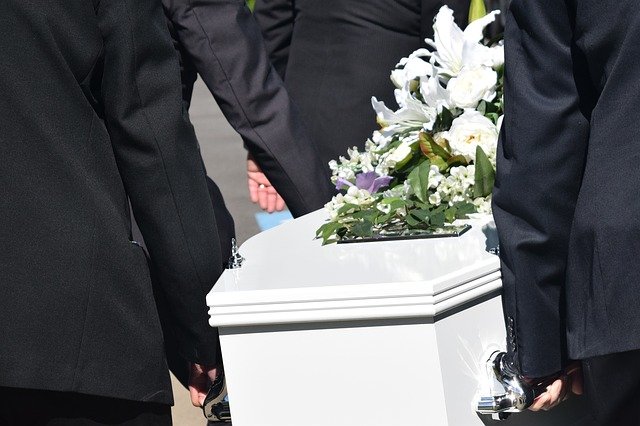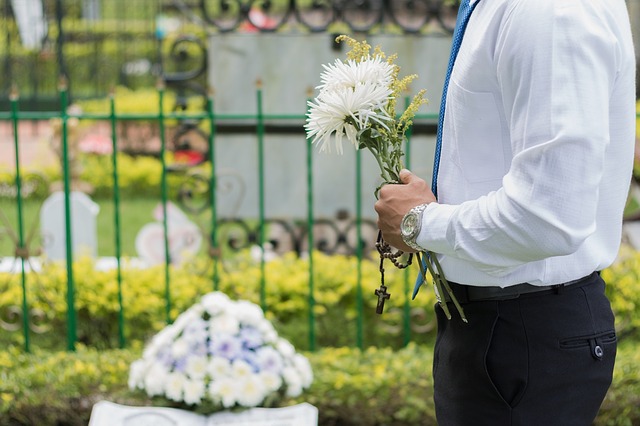"Daniel* just got off the phone with me and he passed on a very devastating news that he just lost both of his parents and a cousin in a fatal car accident. Daniel is a good friend and a colleague that I have known for some time now. This news is heartbreaking, and I don't know what to say to him at this time."
The above story is just one of the many cases of people, friends, loved ones, and family members losing people to death daily. It is no news that COVID-19 is snuffing lives out of many people. This does not mean that other causes of death are ignored. The fact is at one point or the other, you will know someone that is going through grief of some sort. The question that I asked myself when Daniel informed me of his parents' death is not new to most people —and that is, 'how do I comfort a dear one who is bereaved?'
When someone is bereaved around you, it is proper and needful to show that human empathy and sympathy to such a person. Most times, people don't know what to say or how to approach such a situation. Last year, I wrote an article on dealing with the loss of a loved one. In that article, I focused more on one’s self, but here, I want to focus on what you can do to support others around you.
First, when the news of someone's loss hits you, sometimes you might be totally confused on how to approach it. Here, I would like to share some of the practical things you can do to encourage, show love, comfort, and manage someone going through grief.
#1. Let the person know that you care
A wise man said 'people don't care how much you know but wants to know how much you care'. It is time to care for such people or show care to them. Depending on their immediate needs at the time – reach out to them. Be there, and assist them in any way you can. Just being there shows how much you love and care for them.
Subscribe to Dazzling Insights Blog
You will be notified as soon as a new article is published
#2. Listen more and talk less
When you have someone who is bereaved around you, the best thing to do is to listen more and talk less. Yes, your words of encouragement might help. Still, it pays to listen more than to start philosophising about death or repeat all the death-related cliché that you know.
I will encourage you to sit there and listen to the person. When your bereaved friend or family member starts to sense that someone is listening to him/her, it will make the person talk, hence, bringing healing. I have learnt to listen more in such moments, and I have had someone later mentioned to me – "I was just relieved that you listen to me". Be an active listener – this does not mean that you cannot ask questions for clarity, etc.
#3. Know that it is not your 'me' time, direct all attention to the person
When you hang around someone going through a loss, make them understand that your time with them is all about them and not you. Direct the conversation to the person and the departed soul and not yourself.
Even though you have been through something similar, be careful how you raise it. Just because you have gone through similar ordeal does not mean that other people will respond like you. Let the time and moment be about the bereaved person.

#4. Help the person out in many ways – chores, tasks, cook, etc.
When you visit such a friend, colleague or family members, help them out with their tasks. For example, cook for them, do laundry, cleaning, and other tasks. That will take away some of the person's worries.
Don't expect the person to serve you in such times; rather, it should be vice versa. For a colleague, if he/she had urgent deadlines to meet, you can offer to help the person with such. I brought this up because some employers and countries are not very generous with bereavement leave, especially when it does not involve the immediate family member.
#5. Respect that person's space
Sometimes, people going through a loss might want to have their space. Please respect it. That is not the period to start calling, texting and emailing. If they need some time to mourn or recover privately, please respect their space.
After such time, you can always reconnect. Please respect their privacy and healing time!
Share this Dazzling Post
#6. Give them time to recover
Here is another crucial point, in the previous point I tried to get you to give them space if need be. In this point, I want you to be patient with them. As a matter of fact, one cannot recover from the loss of any loved one – read here, and you will find why!
Here, I am using the term recovery to refer to them getting back to their regular activities and lifestyle. For some people, it might take a short time and for others, it might take a longer time or might never happen. Whatever is the case, please be patient with them and give them some time to get back. Never compare your recovery period with others.
#7. Help them to understand the process of grief
One thing you can do is to help them to go through the grieving process. You can refer them to this beautiful article on dealing with the loss of a loved one. Provide support resources to them. If they love movies or books, provide them with movies or books that might inspire them.
Going through the beautiful memories of the deceased might help them too.

"A wise man said 'people don't care how much you know but wants to know how much you care'. It is time to care for such people or show care to them."
#8. Don't blame them for not doing enough
No matter the cause of the death, please don’t for once blame them for being responsible for the loss. Try not to apportion blames such as, if you were here, our mother would not have passed on, or it's because you did not do this or that, etc., that is why the person is deceased.
Please avoid blaming them for their loved one's death. Doing such can ultimately aggravate the situation.
#9. Get the person flowers, candles or other significant gifts
Depending on the person's culture, buy the person gifts such as flowers, candles and other nice gifts to console the person. Sometimes, it might be getting something that will bring good memories of the departed soul.
Giving money or cash gifts can also be useful. Imagine visiting a family or someone who just lost their breadwinner, giving cheques, or cash gifts can go a long way in relieving the person. Make some provisions available, e.g. take water, food, toiletries to the person. For me, I cannot visit such people without giving them something. I feel better doing that, because, I have gone through a situation that such a gesture meant so much to me. Unless this is forbidden in your culture, otherwise, I would say follow your heart!

#10. Help the person get back to life
Help a bereaved family member or a friend to get back to life. How can one do this? I am glad you asked. For example, make out extra time to accompany them to groceries, sports, church, movies, operas, and other places that they may wish to go. Be real to them; let them know that there is still a great life ahead of them and that they can become all they want to be.
Please encourage them to open up to people around them and get back to life. Depending on your level of relationship with the person, let them know that you are there for them and can help them get back up.
#11. Hold them up in prayers
Most times, when someone is going through a loss via death, you will hear some people say 'my thoughts and prayers are with you and your family". These are not meant to be mere cliché but back it up with action. Yes, do the action! Pray to God to comfort them. Think (good thoughts) about them and their lost loved one.
Your prayers can help them. You would be more fulfilled to have helped your bereaved friend or family member in your way if you did the above listed things.
I will strongly encourage you to actively seek opportunities to encourage people that are going through difficult times due to the loss of a loved one. By so doing, you will also be fulfilled. All I am hoping for is that we all dazzle together despite what our friends, colleagues and family members are facing per time. The mantra is, let's dazzle together even in the face of bereavement.
*Daniel is not his real name.


Comments 2
These are important points. I always find myself not knowing what to do or say to people when they lose a loved one. We don’t have to be perfect for them, we can simply show them we care. Thank you for sharing.
Author
Dear Yemi,
I can relate with your words. Many times, I am just lost trying to figure out what to do or what to say. You are right —many times, just knowing that someone cares is more than enough. Thanks for supporting these thoughts.